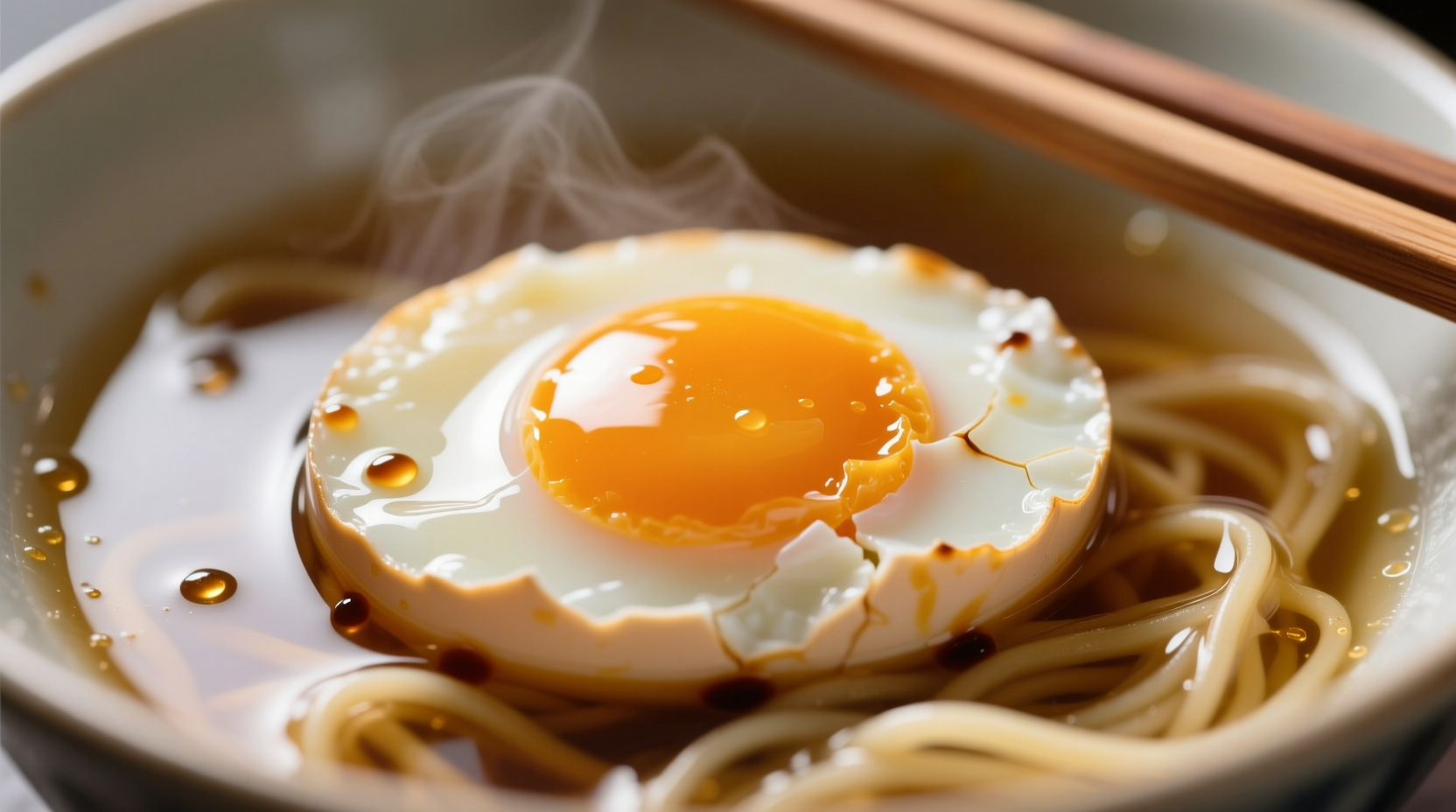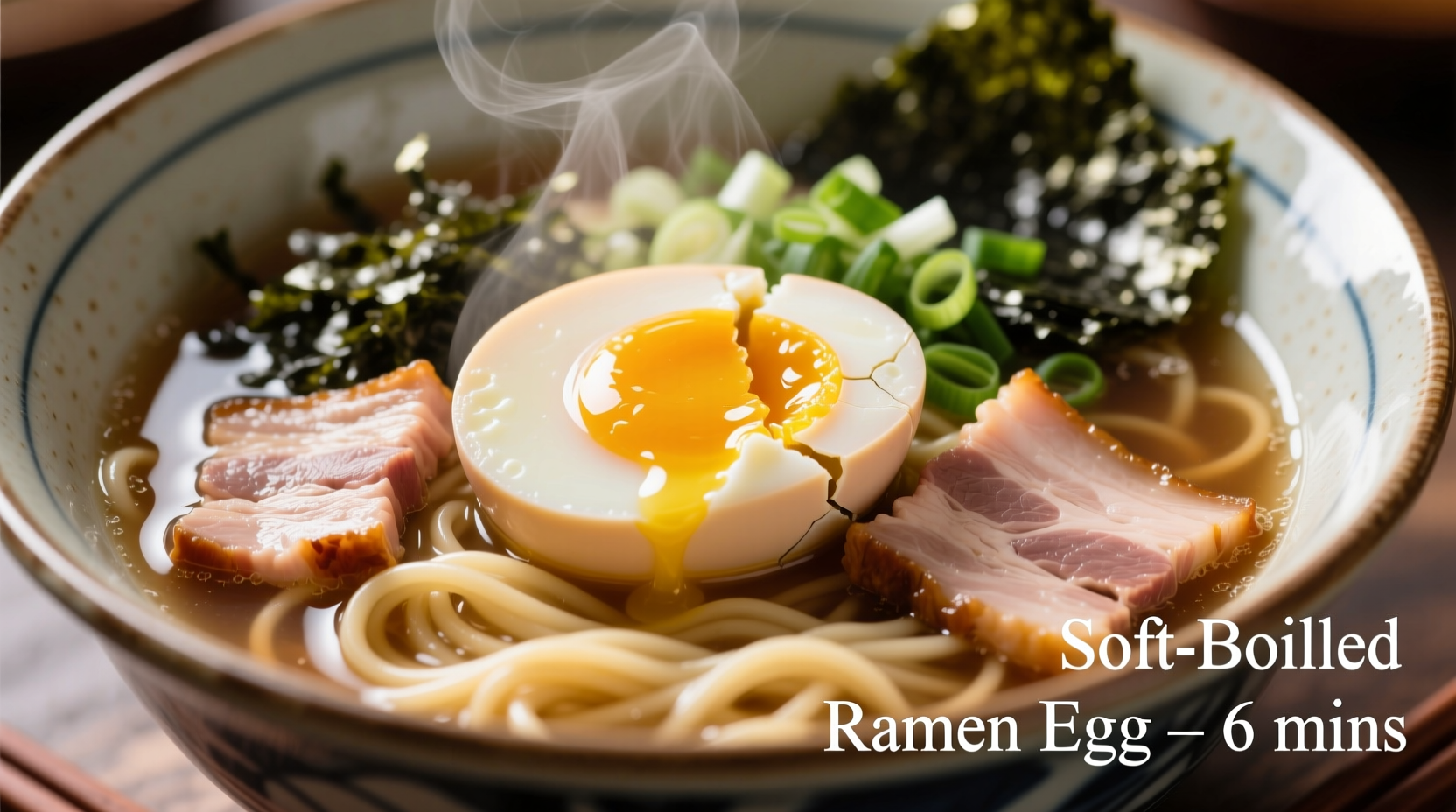Mastering how to cook egg for ramen transforms a simple bowl into an authentic culinary experience. The ideal ramen egg features a custardy yolk, tender white, and rich flavor that complements the broth. This guide reveals precisely timed methods trusted by ramen chefs worldwide, with techniques perfected through centuries of Japanese culinary tradition.
The Ramen Egg Evolution
Ramen eggs have evolved from simple boiled additions to star ingredients in Japanese noodle shops. Originally, eggs were added to stretch meals during post-war food shortages. By the 1970s, specialized ajitsuke tamago (marinated eggs) emerged in Tokyo ramen bars, where chefs discovered soy-marinated soft-boiled eggs created perfect flavor harmony with tonkotsu broth. Today, this preparation remains essential to authentic ramen experiences worldwide.
Four Proven Egg Cooking Methods
Understanding how to cook egg for ramen requires selecting the right technique for your broth and preferences. Each method delivers distinct textures and flavor profiles.
1. Soft-Boiled Ajitsuke Tamago (Classic Method)
This traditional approach creates the signature custardy yolk with tender whites. Start with room-temperature eggs to prevent cracking:
- Bring water to rolling boil (212°F/100°C)
- Gently lower eggs using spoon
- Boil for exactly 6 minutes 30 seconds
- Immediately transfer to ice bath for 3 minutes
- Peel carefully under cold running water
- Marinate in soy-mirin mixture for 4-12 hours
2. Onsen Tamago (Hot Spring Style)
This gentle cooking method produces silky textures impossible with boiling:
- Heat water to 145°F (63°C) and maintain temperature
- Submerge eggs for 15-17 minutes
- Yolks remain liquid while whites set softly
- Perfect for delicate shio or shoyu broths
3. Fried Ramen Eggs (Quick Alternative)
When time is limited, this method delivers restaurant-quality results in minutes:
- Heat 1 tsp neutral oil in nonstick pan
- Cook egg over medium-low heat for 2-3 minutes
- Cover pan for final 30 seconds to set top
- Flip carefully for sunny-side up presentation
4. Marinated Soy Eggs (Make-Ahead Option)
Prepare these in batches for ready-to-use perfection:
- Use 6-minute boiled eggs as base
- Create marinade: 1 cup soy sauce, 1 cup mirin, ¼ cup sake, 2 tbsp sugar
- Add garlic, ginger, and green onion for complexity
- Marinate 4-12 hours (longer = deeper color)
Precision Timing Guide
Mastering how to cook egg for ramen requires exact timing. The following chart shows results at different durations:
| Boiling Time | Yolk Texture | White Texture | Best For |
|---|---|---|---|
| 5:30 minutes | Completely liquid | Slightly runny | Creamy broths |
| 6:30 minutes | Custardy center | Firm but tender | All ramen types |
| 7:30 minutes | Set with soft center | Fully firm | Spicy ramen |
| 9:00 minutes | Fully set | Rubbery | Avoid for ramen |
Avoiding Common Ramen Egg Mistakes
Even experienced cooks make these errors when learning how to cook egg for ramen:
- Using cold eggs - Causes cracking during boiling. Always bring eggs to room temperature first
- Over-marinating - Beyond 12 hours makes eggs too salty and rubbery. 6-8 hours is ideal
- Peeling too soon - Wait 3 minutes in ice bath before peeling for clean results
- Incorrect water temperature - Boiling must be vigorous for soft-boiled eggs

Advanced Ramen Egg Techniques
Elevate your how to cook egg for ramen skills with these professional methods:
- Double marination - First in basic soy mixture, then in concentrated dashi broth for layered flavor
- Temperature control - Use digital thermometer to maintain exact water temperature
- Peeling trick - Add 1 tsp baking soda to boiling water for easier peeling
- Storage method - Keep marinated eggs in liquid with fresh aromatics for up to 5 days
When to Use Each Egg Style
Understanding context boundaries ensures perfect pairing with your ramen:
- Tonkotsu ramen - Soft-boiled ajitsuke tamago balances rich pork broth
- Shoyu ramen - Marinated soy eggs complement soy-based broth
- Spicy miso ramen - Fully set yolks provide contrast to intense heat
- Vegetarian ramen - Onsen tamago adds delicate richness without meat
Frequently Asked Questions
Here are answers to common questions about how to cook egg for ramen:











 浙公网安备
33010002000092号
浙公网安备
33010002000092号 浙B2-20120091-4
浙B2-20120091-4